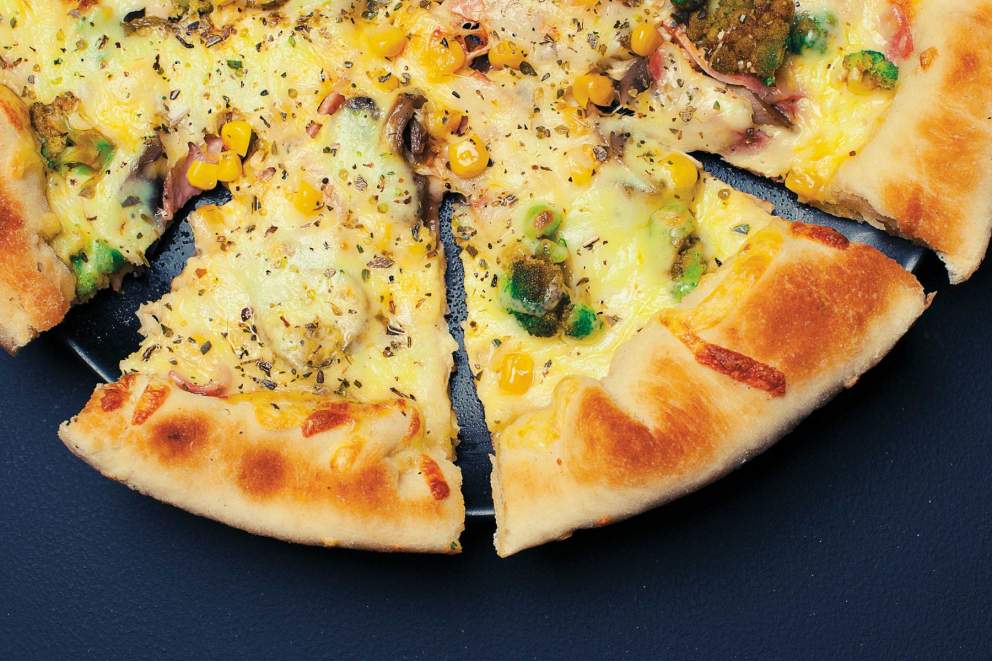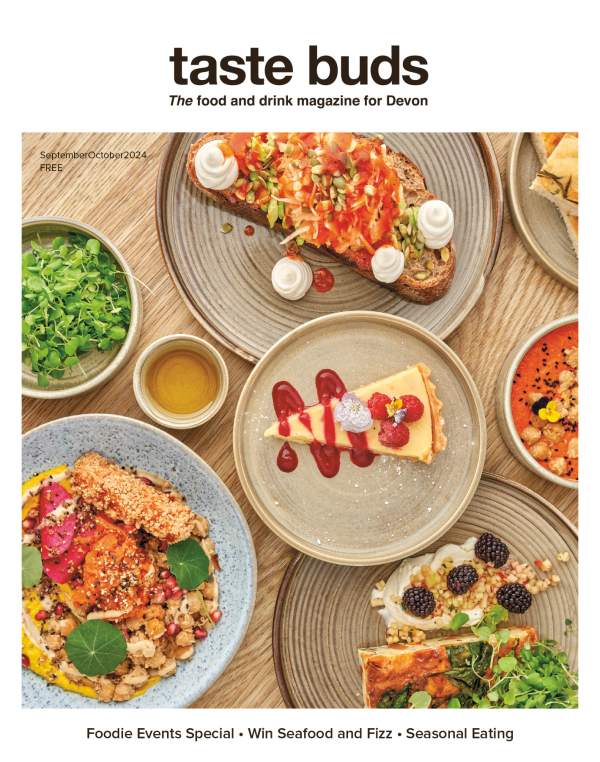Su Carroll reflects on why we should all be cutting down on waste, with the average family throwing away food worth £700 every year

I grew up in a big family, and my mum was adept at stretching food to feed five children. She’d lived through war-time rationing and the one thing she couldn’t abide was waste, a habit that I’ve inherited with enthusiasm.
My mum made sure that every penny counted in the kitchen. Today, avoiding waste isn’t always a financial decision; there’s also social and environmental merit in not throwing unwanted food in the bin at a time when poverty is rife and landfill sites are overflowing.
January is a good time to change your kitchen habits, particularly after a Christmas blow-out that has impacted on our waistlines and wallets. According to Recycle Devon, everyone throws away more food than they think they do. Fresh fruit and vegetables, bread, dairy produce, rice and pasta make up nearly 50% of what’s discarded, with the average family binning food worth up to £700 a year, half of which is still edible.
So, what’s the answer? Asking a Michelin chef is a surprisingly good place to start. Mark Dodson from The Mason’s Arms at Knowstone says it’s simple: “Plan, plan, plan. Buy in small quantities for a couple of days at a time, stay seasonal and by all means look for a bargain, but if your shopping basket is seasonal it should be a good price.”
It’s obvious, isn’t it? If you don’t over-shop, you won’t be throwing away unwanted food. Make a meal plan for the week and then a careful shopping list to make sure you’re only buying what you need. Try to coordinate your menu: roast chicken on Sunday will produce leftovers for salads, pasta sauces and sandwiches, and you can make a stock with the carcass. One of my favourite tricks is to put all my veg peelings, such as onions, carrots and celery, with leftover herbs in a plastic food bag in the freezer until I’m ready to make stock. These trimmings can go straight in the pot from frozen. Odd bits of wine or cider are also frozen for the Sunday gravy.
Leftover veg goes in soups and sauces, stale bread makes a great bread and butter pudding, and any odd bits of cheese can be grated and stored in the freezer, ready for a topping on pasta and pizza, or adding to sauces.
And don’t throw away stuff because there isn’t much of it. Small amounts of fruit can go into a smoothie with milk or yoghurt, or add them to crumble. Little bits of ham and some grated cheese make a great topping for toast, a baked potato, or to liven up a plain pizza.
Recycle Devon is a supporter of the Love Food, Hate Waste campaign, set up in 2007 by Waste and Resources Action Programme (WRAP), which aims to promote sustainable waste management. It has consistently championed ways of reducing food waste and pressed for changes in food packaging and labels, which could save UK households £1 billion a year and keep 350,000 tonnes of food from ending up in the bin.
One cause of confusion is the difference between best-before and sell-by dates. Research by WRAP suggests that moving from a ‘use by’ to a ‘best before’ date – where safe to do so – gives us more flexibility to eat food after the date; and it’s already happened with some cheeses and pasteurised fruit juice.
Other measures you can take to reduce waste include making sure your fridge temperature is low enough – it needs to be below 5°C, and if you’re not sure, get a fridge thermometer. Buy smaller quantities of food and, if you’re tempted by special offers, freeze some of it or pass what you don’t need to a local foodbank. And exercise portion control to avoid leftovers in the first place.
I like to bulk-cook family favourites – chillies, spag bol, stews, fish pies – and freeze portions to give myself a night off from cooking. You’ll save energy costs by cooking once and only having to reheat a dish. If you cook a lot of sauces, soups and stews, a pressure cooker can save time and energy, and is perfect for cooking cheaper cuts of meat.
It pays to make your oven and freezer work for you. The trick is to see everything as a leftovers challenge, not something to go straight into the bin. And label everything!
I must admit that, thanks to my mum, I’m quite evangelical about avoiding waste. Hopefully, now, you are too. And who doesn’t want to save £60 a month?
Some of Devon’s top chefs share their food-saving ideas...
Mark Dodson, The Mason’s Arms at Knowstone
Make two batches of a dish, as it’s always good to have a standby in the freezer. One meal often leads to another, so make a risotto or homemade soup the day after your roast chicken with any leftovers.
Ben Palmer, The Greedy Goose, Plymouth
Treat tonight’s leftovers as tomorrow’s lunch. Roast lamb can be turned into shepherd’s pie, roast chicken is lovely in a salad or as coronation chicken with mayonnaise and curry powder. Roasted meat already has a lot of flavour, so don’t waste it.
Josh Ackland, Glazebrook House, South Brent
Bubble and squeak always has a lot of flavour, and I love all the leftover meats at Christmas, even if they just end up in sandwiches. One thing I would suggest is not throwing away small amounts: raspberries and blackberries freeze really well, so you can keep adding to what you have until there’s enough to do something with.
Dave Jenkins, Rock Salt Café and Salumi, Plymouth
At home I love to cook a lamb roast as it’s so versatile the next day… but I always cook too much! I take the leftover veggies (cauliflower cheese, carrot and swede mash, cabbage and bacon) and the roasties (if you’ve eaten them all use mash) and mash them together rustically. Add black pudding, mould into disc shapes and refrigerate until firm. Then coat with egg, flour and breadcrumbs and fry until crisp. Top with a fried duck egg and Béarnaise sauce to make a great brunch. The leftover lamb I fry until crispy in a pan, then add a little gravy and mint sauce, and cook until reduced. Put in a wrap with avocado, cucumber and sour cream for a lovely lunch. This works well with other roast meats, too.
Six times a year, delivered to your door
Annual subscription: £15
Single Issue: £3
September October 2024 issue out now
Try before you buy. View digital edition
Go to Shop